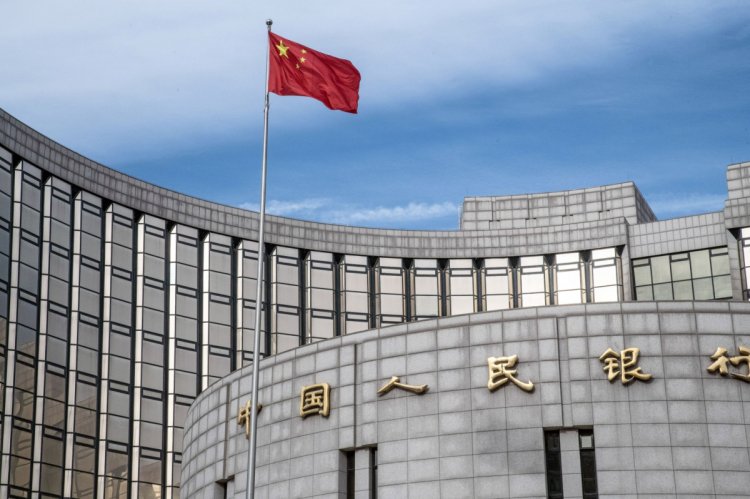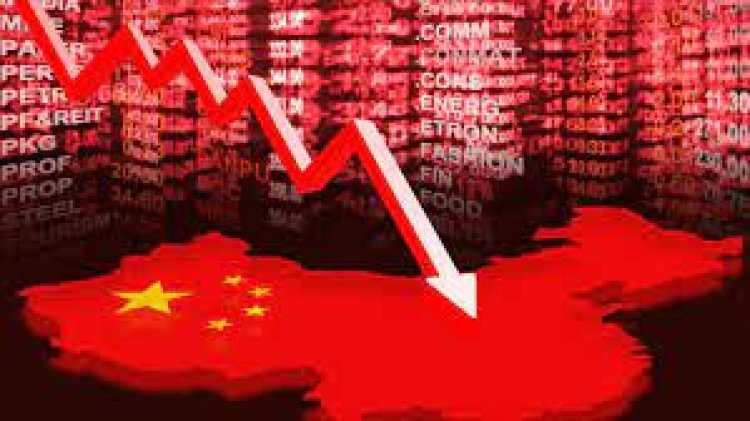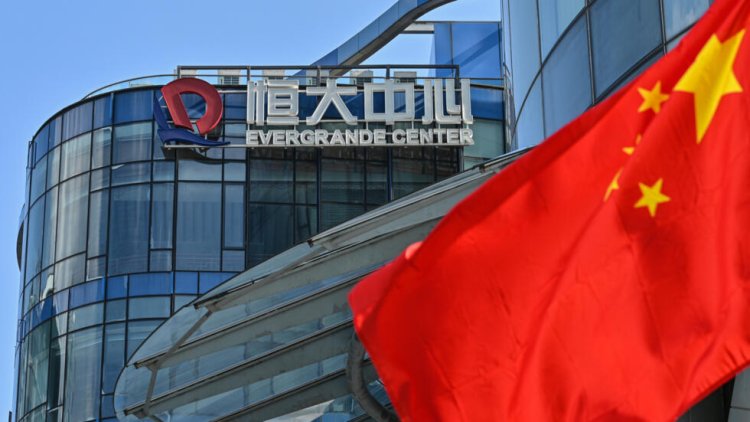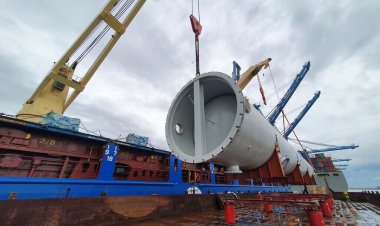China seeks to allay concerns about its economy after Moody's rating downgrade

The real estate sector in China, which constitutes a quarter of the second largest economy in the world, is suffering from many difficulties that have led to its rapid decline. Although the authorities were quick to support it, the Chinese government faces great challenges in dealing with the real estate sector crisis, as it seeks to limit its negative effects on its economy, as well as the global economy, at a time when the Chinese economy appears to be facing a bad end to this year with weak manufacturing activity. and services, which shows the failure of the government's stimulus efforts.
Crisis in real estate sector in China
The latest chapter of the crisis in this sector was evident in the failure of the Chinese construction company, Powerlong Real Estate Holdings Limited, to repay one of its dollar bonds, as it suffers from slowing sales and deteriorating liquidity. The Shanghai-based company said it had not paid $15.9 million in interest on its 5.95 percent bonds due in April 2025 as its liquidity position continued to deteriorate, according to a stock exchange filing late Wednesday. Failure to pay will result in a default under the terms of certain offshore banks and other loans.
Powerlong indicated that it had not received any acceleration notice for early payment until Wednesday. It appointed Haitong International Securities as a financial advisor and Sidley Austin as a legal advisor to facilitate dialogue with its creditors, according to the statement.
PowerLong's 5.95 percent dollar bonds due in April 2025 fell by 0.7 cents to 7.1 cents on Thursday, according to data compiled by Bloomberg.

Powerlong's default is the latest setback for the Chinese authorities, which are seeking to revive the real estate market as the debt crisis enters its fourth year. Beijing has taken several new steps in recent months to provide additional support to developers, including a broad relaxation of down payment requirements for homes, and reductions in some mortgage rates. But this was not enough to turn things around. The value of new home sales among the 100 largest real estate companies fell by 27.5 percent from the previous year in October, according to data published by the China Real Estate Information Company.
Last July, Powerlong obtained bondholders’ approval to complete exchange offers for some of its dollar bonds. The current default shows that despite the extra time the company has bought itself, it is still facing increasing liquidity pressures as sales remain weak.

“Evergrande” seeks to avoid liquidation
For its part, China Evergrande Group, the world's largest indebted real estate developer, is seeking to avoid a possible imminent liquidation by proposing a last-minute debt restructuring.
Reuters quoted sources familiar with the matter, who declined to reveal their identity, that creditors are unlikely to accept Evergrande’s new offer, given the weak prospects for recovery and growing concerns about the developer’s future.

The new proposal offers creditors a 17.8 percent stake in Evergrande, in addition to the October offer of 30 percent stakes in each of its two Hong Kong units, “Evergrande Real Estate Services Group” and “Evergrande New Energy Vehicles Group.”
According to sources, many creditors were dissatisfied with the terms of October. Because it involves a significant reduction in investments, which forced Evergrande to rush to sweeten the deal in what may be its last attempt to avoid liquidation.
Chinese factories sinking deeper
On the other hand, Chinese factories are sinking deeper into contraction, as they are expected to see more political support. Manufacturing activity in China contracted for the second month in a row in November and at a faster pace, indicating the need for more stimulus to support economic growth and restore confidence in the authorities’ ability to support the industry, according to Reuters.
Economists raised their forecasts for the world's second-largest economy after better-than-expected third-quarter data, but despite a wave of policy support measures, negative sentiment among factory managers appears to have become entrenched in the face of weak demand at home and abroad.
Services sector
In another worrying sign, the huge services sector contracted for the first time in 12 months. The non-manufacturing PMI, which includes services and construction, fell to 50.2 in November from 50.6 last month.
“Hard data has held up better than survey-based measures recently... (which) may overstate the extent of the slowdown due to sentiment effects... but “If that starts to change, policy support will need to be strengthened further to prevent the economy from falling.”
Zhu Hao, an economist at Guotai Junan International, said: “Today’s PMI reading will increase expectations towards policy support... Fiscal policy will be in the spotlight and will take center stage over the next year, and will be closely watched by the market.”


 Shrouq
Shrouq 












